Scholar Spotlight - Gabrielle Dumé

Discover more Scholar Spotlights.
Gabrielle Dumé, a Laidlaw Scholar at the University of Toronto explores how advocacy drives policy and childhood obesity prevention initiatives in Barbados
Research Title:
How Advocacy Drives Policy: A Case Study on Childhood Obesity Prevention Initiatives in Barbados
Did you know that in Barbados, at least one in three children are either overweight or obese? Did you also know that Barbados is considered to be the amputation capital of the world, due to diabetes? Non-communicable diseases are a silent killer for many, since it does not affect you early on, you can easily slip into dangerous territory, leaving yourself stuck in a lifetime of unhealthy habits that are difficult to come out of. However, the blame does not just lie on the individual, as one’s environment heavily contributes to one’s health.
From 2022-2023, I worked alongside four other researchers, and our faculty mentor Dr. Leanne De Souza Kenney with the Reach Alliance, to examine what makes Barbados vulnerable to non-communicable diseases–in particular childhood obesity–and learned how civil society, advocacy groups, and government worked together to establish sustainable policy. We interviewed key leaders in the fields of health advocacy, finance, and government to learn how they settled differences to create real change for the Barbadian people. Our results were clear: in order to prevent a disease like obesity on a societal level, you have to attack the issue from all fronts; from the grocery store to the classroom, and into the households themselves. This can only be done through purposeful advocacy and collaborative stakeholders and government.
My research has a real-world impact, as I witnessed first-hand when I returned to Barbados during my LIA. After presenting my research back to the Childhood Obesity Coalition, a group of the key movers and shakers, they shared with me that the research had the capability of reshaping their way forward in future advocacy efforts. Outside of Barbados, it could serve as a model for what key skills are needed for large collaborations in the health sphere to impact the vulnerable.
Where did your passion for this research originate?
My relationship with this research project had some ups and downs in its early days, however, one thing was certain: when I was given the opportunity to conduct research, I knew that I wanted to research health in the Caribbean. As a Haitian-Jamaican-Canadian (a mouthful, I know), the Caribbean holds a special place in my heart. This love deepened when I got to understand the greater context of the islands in relation to colonialism and the current variety in the socioeconomics of each island.
My simple interest in researching the Caribbean as a way to stay connected to my heritage was further deepened when I realized that this research was not just about the Bajans I learned to know and love, I was personal. Many in my family, deal with non-communicable diseases of their own. Watching them have to rely on medications, numerous doctor’s visits, and strict diets, doctor’s orders, pained me, understanding that so much of this was tied to their lifestyle and diet, influenced by the factors I explored in my research.
Because of the way the severity non-communicable diseases, like obesity, heart disease, and diabetes does not become apparent until it is very difficult to break a lifetime of habits, there is no feeling of urgency. For this reason, my research contributes to the mission to help build an environment and encourage greater resources to ensure the public can live a full and healthy life.
What is the most memorable moment from your Laidlaw scholarship experience so far?
I will never forget the moment I watched a group of seven-year-olds rush up and down in the air-conditioned workshop room, cheering each other on, as they designed the most healthy meal possible with limited ingredients. I will never forget their scrunched noses of concentration as they reflected on why fried chicken is not as healthy as grilled chicken, or when their eyes widened at how many scoops of sugar are in one bottle of their favourite soda. During my LIA, these were the moments I lived for, when I got to see how kids lit up as they competed with one another, or how they laughed at my silly songs to make them more comfortable in the Heart and Stroke Foundation of Barbados headquarters. That’s when I saw what my research was all about, how one of the findings regarding the benefit of gamifying health education was implemented through creating my Games for Good. As much as I loved being challenged by fellow scholars during deep societal conversations, or practicing public speaking at conferences and to key leaders, witnessing how big ideas can impact the littlest among us was my most memorable moment in the Laidlaw Scholar Program.
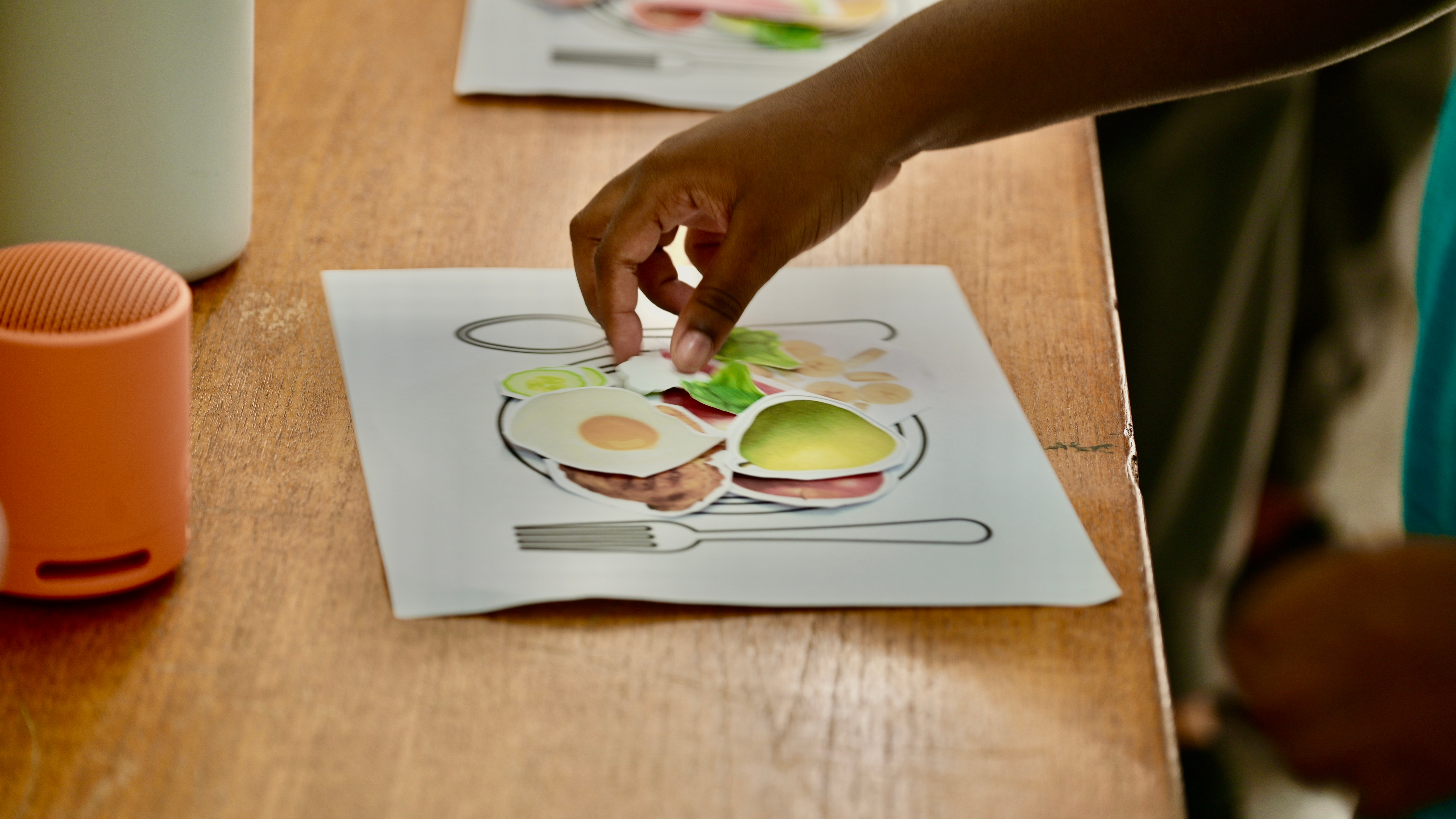
Image of child playing a Game for Good – a part of LIA with the Heart and Stroke Foundation of Barbados
What is the biggest challenge you came across in your research and leadership journeys so far, and what did you learn from it?
The biggest challenge I came across was how to overcome burnout. I quickly realized that I was holding myself to too high a standard that I could hardly keep up with. When the rift of who I was, and who I ought to be, became so large that not even my passion and dreams could overcome the disparity, I knew that something had to change. I had to learn how to build the confidence to be in rooms that I felt small in, and take the risks to push me out of my comfort zone. As someone that loves challenges however, I had to always be sure to understand that every time I take a leap of faith, there lays the opportunity. But those leaps, when they do land, have the opportunity to strengthen me, and encourage me to keep pressing forward. I realized that overtime, I had taken so many leaps, that I was getting stress fractures, being slowly wearied by my own productivity. I forgot, as every good runner knows, the power of recovery. Moments of rest enabled my muscles to rebuild themselves, so that the next time I make another leap, I would be even stronger. What makes the difference between a failure or hyperproductivity breaking or strengthening you? It is the time between each moment. I take the opportunity to reflect on what were the reasons behind my setbacks, my mistakes, whether they were out of my control, and how can I react better the next time.
What does it mean for you to be a Laidlaw Scholar?
Becoming a Laidlaw scholar has been the best opportunity to work closely with like-minded leaders. Some of the most passionate, caring people I have met at university have been through the Laidlaw Scholar program, and their drive to help better our world unites us. Being a Laidlaw Scholar also provides a safe space to be ambitious, to push for our goals. The program has challenged me to deeply consider the importance of ethical leadership and its role in our ever-changing society. As a Fourth-year, I now feel the full gravity of this program, and attending the most recent Laidlaw Conference, hosted by Columbia University also brought me into a place of complete gratitude for the the Laidlaw team and my fellow scholars. I am proud to be a part of an organization that invests in students and places them in the real spaces, dealing with the real challenges.
Which particular leaders inspire you the most and why?
I strongly admire leaders that, despite the countless barriers that they face, transform their own struggles into a platform to uplift others. These are the Malalas, the Rosa Parks and the Mandelas of the world. I believe that my sister, Catherine Dumé lies among these kinds of leaders. Born with epilepsy, hearing loss, and other learning disabilities, navigating life was not easy for her. In spite of this, she carved her path, and honed her gift of writing and now dedicates her life to accessibility advocacy and is currently completing her masters of political science for this purpose. I recently participated with the University of Toronto’s Accessibility Services in surprising her with the first ever Pearl Levy award, given to student leaders in the accessibility space. I was so proud to watch her hard work get acknowledged. Often, we can become so overwhelmed by the immensity of the issues that face our world. However, if we can learn to be like my sister Catherine, and simply make the spaces we occupy a little better for those after us, we would be able to create lasting impact.
Briefly describe a scene from the future you are striving to create.
In the future, I strive to be a medical physician that not only advocates for my patients but also works to improve the relationship people have to the medical field, especially communities that have been historically wronged by the field. Through my Laidlaw experience, I learned about the importance of knowledge translation, and catering to the audience we wish to serve. I recently learned that I love to write, and so I hope I am able to incorporate my future medical expertise with my writing and creative side to help make health information more accessible for different groups of people!
Quick-fire Questions
📺 Currently Binging:
📚 My top book recommendation:
And Then There Were None by Agatha Christie
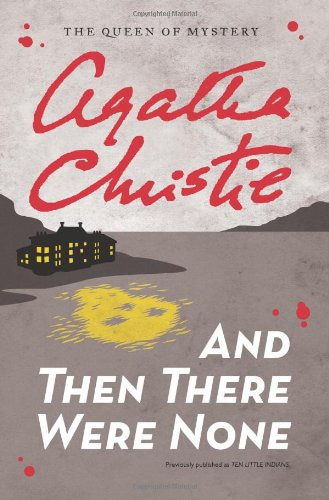
🎶 My anthem:
-
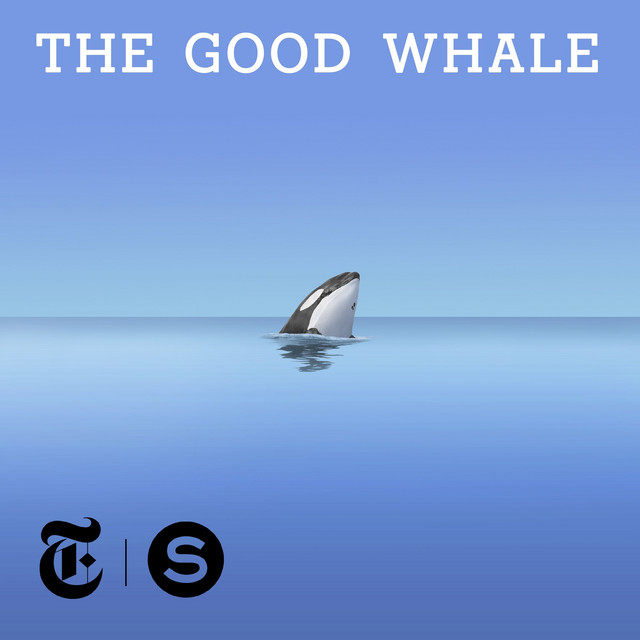
🌈 Something that made me feel joy recently:
Going for runs!
I would love the highlight the amazing work being done by the Heart and Stroke Foundation of Barbados in the fight against childhood obesity and other non-communicable diseases. To see some of their current initiatives, check out, @hsfbarbados on instagram, or on their website https://www.hsfbarbados.org/
If you want to learn more about Gabrielle's work, explore her research here and follow her on LinkedIn. Gabrielle Dumé is a Laidlaw Undergraduate Leadership and Research Scholar at the University of Toronto. Become a Laidlaw Scholar to conduct a research project of your choice, develop your leadership skills, and join a global community of changemakers from world-leading universities.
Find out more about the Laidlaw Scholars Undergraduate Leadership and Research Programme.
🔦 Discover more Scholar Spotlights:
⚡️ Anuj (AJ) Manchanda, a Laidlaw Scholar at the University of Toronto, delves into how Environmental CSR initiatives shape consumer choices.
⚡️ Sebastian Glasper, a Laidlaw Scholar at the University of Leeds, explores social media’s role in mitigating loneliness among older adults.
⚡️ Sophia Waseem Khan, a Laidlaw Scholar at Durham University, champions sustainable agriculture through innovative ion recovery.
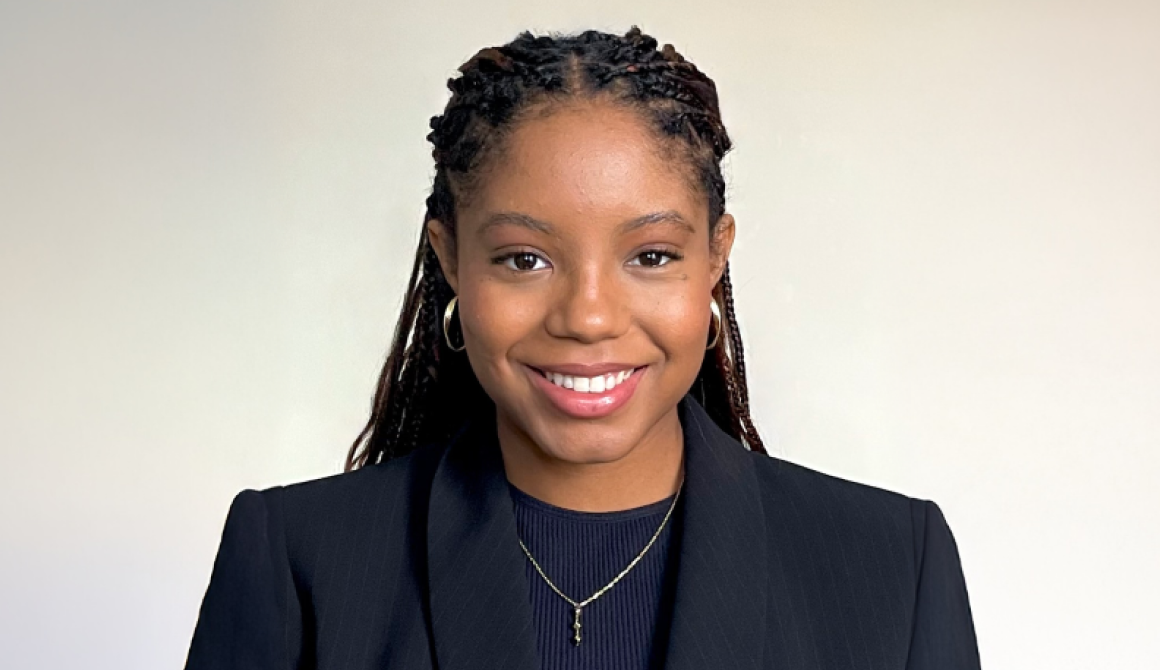

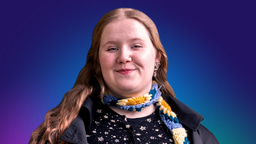
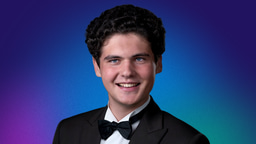

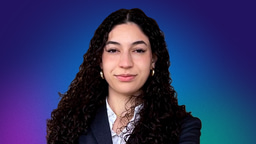

Please sign in
If you are a registered user on Laidlaw Scholars Network, please sign in